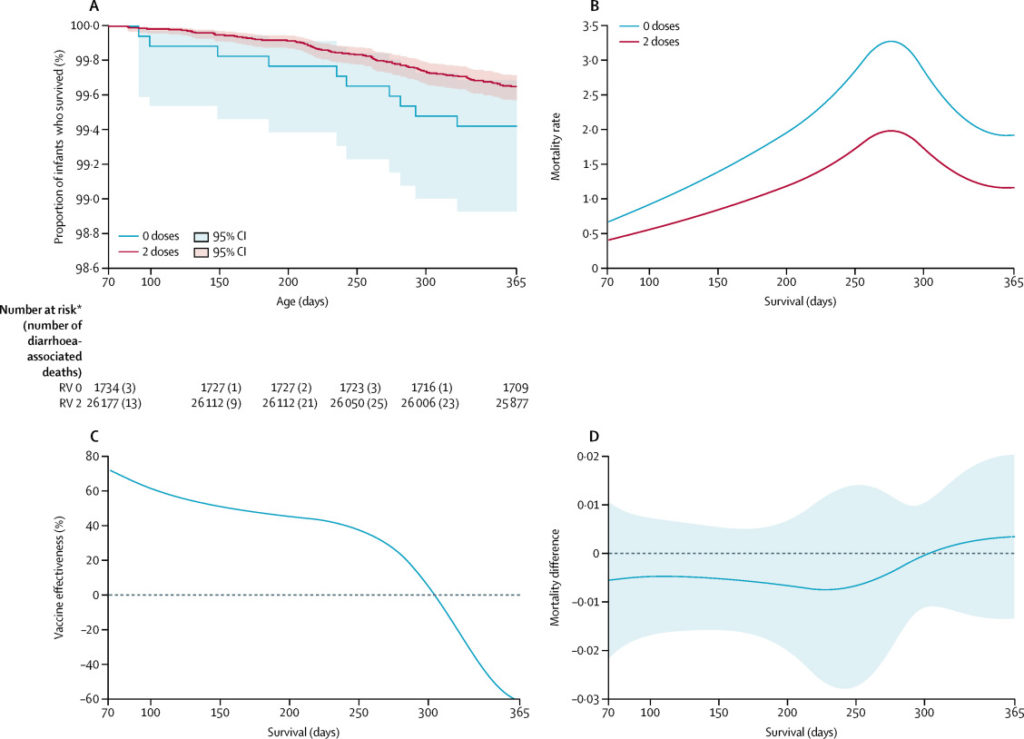A major new study led by scientists at the University of Liverpool, UCL, Johns Hopkins Bloomberg School of Public Health and partners in Malawi, has shown that rotavirus vaccination reduced infant diarrhea deaths by 34 percent in rural Malawi, a region with high levels of child deaths. This study provides the first population-level evidence from a low-income country that rotavirus vaccination saves lives.

These data add considerable weight to the WHO recommendation that all countries add rotavirus vaccine to existing public health interventions to further reduce diarrhoea deaths, particularly countries in south and southeast Asia and sub-Saharan Africa.
You can review the study’s methods and results in full here.
